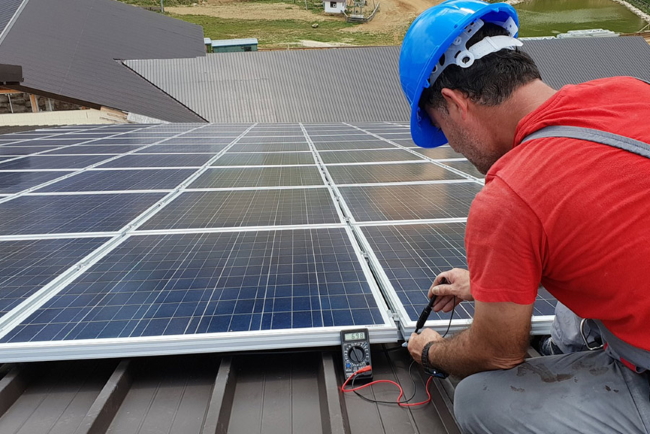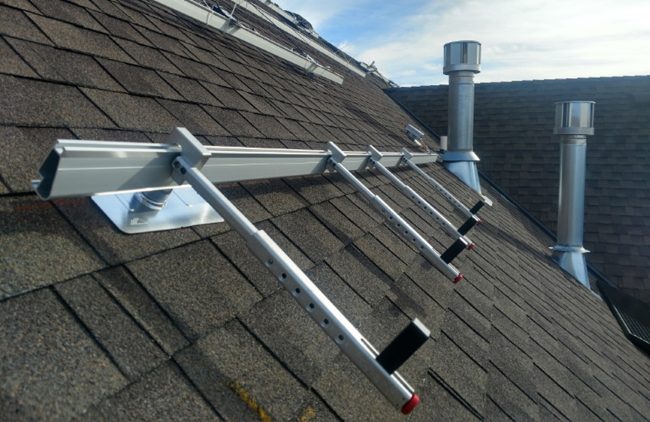Due to the uncertainty in the global energy market, energy bills continue to fluctuate. As a result, we spend above our budget. Electricity is generated from natural gas. Unfortunately, the energy source that almost everyone depends on is non-renewable.

This situation has spiked the interest of homeowners in alternative sources of energy. And among the available options, solar energy, a renewable source of energy, stands out as the most affordable and readily available. You may want to visit https://www.eia.gov/ to read about other alternative energy sources.
The idea of paying lower utility bills monthly as well as increasing the value of one’s property has led many households to embrace solar power. Previously, not many people could afford the cost of installing solar panels. But with the advancement in technology, the panels have been improved both in design and efficiency.
Also, the cost has drastically reduced. Hence, switching to this form of energy will save you more money as well as save the environment. Below, we will discuss some essential tools required for DIY solar installation.
Essential DIY Solar Installation Tools
Here are some of the tools you need for the installation:
Photovoltaic (PV) Tester
A photovoltaic tester is a comprehensive electric test solution that technicians use to verify the effectiveness of photovoltaic arrays. This device helps you to collect enough data that will be used to track the occurrence of problems now or in the future.
Considering the growth of the solar market, it is important to have trusted devices to ensure that the products you purchased are authentic. This will avert any harm that may happen to lives and properties. The photovoltaic tester comes in different sizes and prices, depending on what you want. But you have to be careful and seek advice from a professional technician before buying one.

Solar Panel Hanger
If you don’t want your solar panels to fall off your roof like one falling off a cliff, then you need to have this tool. It is a piece of adjustable equipment that hangs off a rail to hold and position the panels. It also acts as a second pair of hands supporting your own hands to hold the panels. While it holds them, it gives you room to position the panels squarely on the roof.
This tool, though newly introduced into the solar industry, is quite unique. It provides a straightforward and ideal solution to the problem of holding and positioning panels while hanging on a rail. It’s also a must because it guarantees your safety.
It totally removes the fear of what to do if your 50-lb panel is about to fall down a steep roof. You don’t want to imagine the kind of damage that will occur and how much you will spend to get a new one. Therefore, when next you want to install a solar device by yourself, do well to have this tool by your side.
Fall Protection Gear
Solar panel installation is a risky job especially when you are mounting it on your rooftop or dealing with any other kind of heights. Anything can happen and you might slip and fall, breaking a limb or even your head. All of these can be avoided if you get fall protection gear.
For starters, you can also watch this video to learn how to prevent falls during installation.
A fall protection gear consists of the following:
- ropes
- harnesses
- helmets
- fall arrestors
- hooks and connectors
- lanyards
- body belts
For someone who is doing this for the first time, safety should be your priority. Even if you’re a pro or well experienced in installing solar panels, it is still necessary to prevent the danger of falling by protecting yourself adequately.
The tools listed above will help to balance your weight and prevent you from falling.
Mobile Apps
After fixing your first set of panels successfully, you may decide to take on more jobs from friends and neighbors. To do this effectively, you need automation tools to prevent human errors or missed steps. Mobile applications are now available to assist installers with the installation steps.
By using a solar mobile app, your installation will follow the standard procedures. Even when you decide to hire technicians or a complete novice, they will not be at a loss during installation. The app makes it easy for you to document your procedures, manage your team, and get a real-time report from the project site. You can visit https://www.solargraf.com/ to learn more about solar mobile apps.
Battery-Powered Drills
Drills are very useful, especially when you have the appropriate ones for boring holes into woods, metals, concretes, and other surfaces or materials. Battery-powered drills use batteries, usually located at the bottom. They are different from corded drills that require electricity to function.
Battery-powered drills are simple devices but professionals prefer to use the corded versions. Although the corded drills are good, they are quite disadvantageous because of the restrictions that the extension cords cause during installation. And for DIY installation, any little restriction can distract you and result in an accident.
Therefore, it is far better to use battery-powered drills. They ensure the free flow of movement while performing difficult drilling tasks. They are also portable and powerful for effective performance.
Cable and Connecting Tools
A solar technician needs some tools used by electricians. One of such tools is a pair of pliers. The tool helps you to rework and fix electrical wires without the fear of being electrocuted. You can get a set of pliers specifically designed for solar panel installation.
Conclusion
The solar industry is fast growing. A lot of innovations and technical changes are being made to ensure it is up-to-date with the trends and demands of people. However, no matter how much change it experiences, the tools used for installation are almost likely the same thing.
The tools we discussed in this article are some of the must-use tools. Aside from the fact that they ensure the effectiveness of the PV system and its installation process, they also guarantee your safety.
